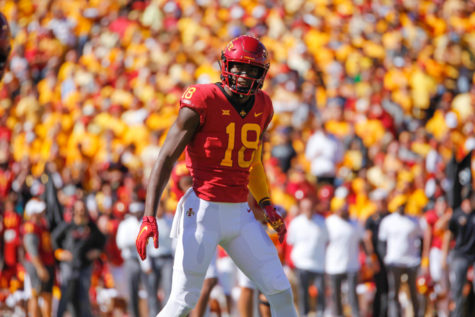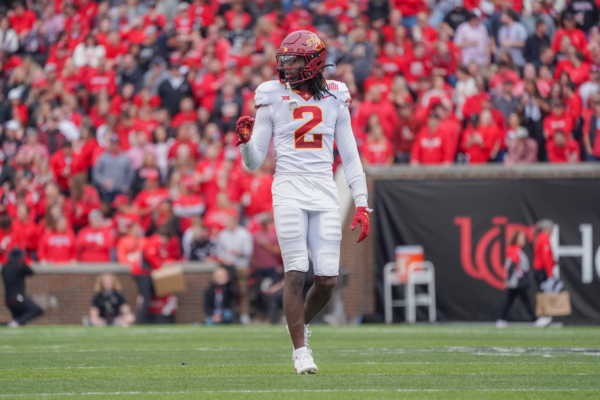MLB contraction a temporary solution
November 8, 2001
On Sunday evening 40 million television sets were tuned to the culmination of a great World Series. Baseball appeared to be back in good graces. On Tuesday evening, Major League Baseball owners did their best to once again tarnish the game by making it look like-what in reality is-a business.
The word that is causing the controversy this time is not bargaining agreement or lockout. It is contraction. No, these are not the excruciating labor pains your mother encountered bringing you into the world. This contraction is much worse.
Baseball owners may be extravagantly wealthy, but I swear most of them can’t balance a checkbook. The financial woes they encounter are ridiculous. The issue of contraction is based on the theory that if the owners can agree to eliminate a couple of low revenue-producing franchises, the outcome will benefit the lot. Sounds decent in theory, if properly handled.
That I wouldn’t bet on.
The fans are the people who will suffer if contraction takes place, and there is no one to blame for this problem but the owners and Major League Baseball. Both parties saw an opportunity to expand into new cities and made their move without searching for truth behind the maxim “If you build it they will come.” Expanding baseball into Florida has been horrible for the game.
The funny part about all of this is watching the owners congregate in Chicago to discuss their financial failings. This is unique. Can you imagine being updated on a McDonald’s board meeting after the corporation decided it had underestimated the cost of McFlurrys, and they needed to go?
Five teams are being seriously considered as the two clubs that will cease to exist before next season. They are the Marlins, Devil Rays, A’s, Expos and Twins. The last two are the most likely to find its team’s heads on the perverbial chopping block.
Although it seems most Floridians would rather shop for Mediterranean bath tiles and art deco chaise lounges than attend baseball games, the Marlins and Devil Rays appear to be safe.
Two reasons: The Devil Rays have a 26-year lease with the city of Tampa Bay, and eliminating them would be a huge legal hassle.
The second reason is the governor. Major League Baseball does not want to take on Florida Gov. Jeb Bush, because he could easily enlist the help of his baseball-loving brother. Case closed there.
The A’s aren’t a viable option either, because it could simply move to baseball-hungry San Jose and boost attendance. It’s also a team on the rise. That leaves the Twins and Expos as the scapegoats.
If the Expos pack up their cleats and leave, most people won’t care. I’m one of them. The Expos have no real history to speak of and get outdrawn by Anthrax concerts. It has continually brought fantastic talent up through its farm system, only to ship the players elsewhere once their salary requests affected the bottom line. Au revoir Montreal.
The Twins are a different story. The Minnesota Twins were the first American League team to draw over 3 million fans in a season. It, unlike Montreal, has won World Series titles. One of those came in 1987, while the other was a memorable 1991 seven-game series where the “homer-hanky” waving fan had as much impact as the talent on the field. Yes, the attendance has faltered for a few years, but last season the Twins averaged over 20,000 per game, while also keeping tabs on first place the first half of the season.
This is a team coming into its own. Eliminating them now would be horrible.
It seems to me that baseball is looking for a Band-Aid to fix to a problem that requires surgery.
Getting rid of a team like the Twins because it isn’t in great shape now, is not a good plan.
If this is the way contraction is handled, then the Atlanta Braves would have been exiled, if this same process had happened 11 years ago. The Twins could pull the same turnaround.
The chances of either team being allowed to play ball next year are slim at best. Not only does baseball want them out, they have packing boxes in hand. The Twins owner, Karl Pohlad, will be paid a sum right around $250 million for his club. This figure is miles above fair market value. Pohlad bought the Twins for $34 million in 1984. Pohlad wants out of the baseball business anyway.
The Expos owner, Jeffery Loria, will not only get paid a handsome amount, but chances are he will take over as owner of the Marlins. The Marlins owner, John Henry, will then buy the Anaheim Angels from Disney, which apparently feels more comfortable running Ice Capades. But that’s another story.
As long as baseball continues to ignore its financial problems, which are many, it will keep hurting the image of this great game. Yes, baseball is a business, but couldn’t the owners possibly have waited for the tears to dry from Yankee eyes before so harshly reminding us of the realities of this game?
Marcus Charter is a junior in journalism and mass communication from Ames.
















